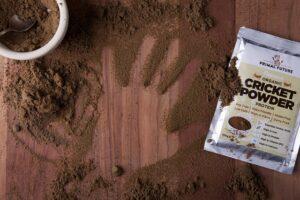In Italy, a regulation regulates the sale of foods containing insect meal
In Italy, the Ministry of Agriculture, the Ministry of Health and the Ministry for the Protection of National Products regulate the labeling and sale of foods containing insect meal in a joint decree, Agriculture Minister Francesco Lollobrigida announced on Thursday.

(Photo: Pixabay)
Foods produced with insect products must be sold in a separate, designated section in stores, and it is stipulated, among other things, how the ingredients must be indicated on foods containing insect meal in a way that is immediately understandable to consumers. “The labels must state the origin of the product, the warning about consumption and possible health risks, the amount of flour from the insect, and we have required that a section of the shelf be set aside for them,” said Francesco Lollobrigida. Those who choose crickets, larvae and locusts can find them on the designated shelves, and those who don’t ask for them “and I think it’s the majority of Italians, can stay away,” he said. Health Minister Orazio Schillaci said: the control of commercial units is entrusted to the anti-counterfeiting unit of the gendarmerie, “so that products containing insect meal are not among the most bought pasta or pizza”.
The Roman government responded to the decision of the European Commission
As of January 24, the board allowed the use of dust obtained from domestic crickets for the production of food. House crickets are the third insect to be approved as a food ingredient on the EU market, following the approval of the larvae of the common mealy bug in July 2022 and the migrating locust in November.
The license was issued following the scientific opinion of the European Food Safety Authority (EFSA).
EFSA has also approved the powder production process, which involves a 24-hour starvation period for the insects before they are washed, heat-treated, frozen, de-oiled and finally turned into a dry powder. According to data from the Coldiretti producer association, 54 percent of Italians say no to foods obtained from insects, 24 percent are indifferent, and only 22 percent would buy them.
MTI
Related news
Despar Italia realises EUR 1.1bn private label sales in 2025
🎧 Hallgasd a cikket: Lejátszás Szünet Folytatás Leállítás Nyelv: Auto…
Read more >Related news
The Hungarian Food Book is 50 years old
🎧 Hallgasd a cikket: Lejátszás Szünet Folytatás Leállítás Nyelv: Auto…
Read more >








